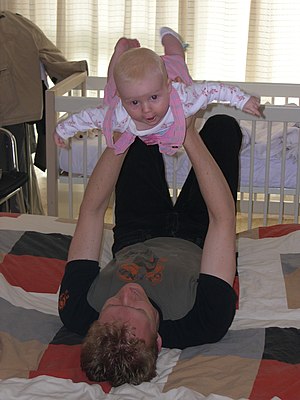 Image via Wikipedia
Image via Wikipedia
In attachment theory, children are seen as completely dependent upon their parents, on whom they rely for getting all their needs met. If the parents are able to notice and respond to the baby's needs - whether for food, warmth, loving interaction, etc. - the baby will develop a "friendly" picture of the world, in which it is possible to be satisfied and have needs met, and a "friendly" picture of his or her self as lovable and worthy of being cared for.
Unfortunately, when this is not the case, other views of the world and self can develop which tend to persist later into life, a view where the world is not a place where needs can be met and connection can be found, and where the self is unworthy of having this kind of fulfillment.
What this means, and why it is important:
As an adult, you have certain views about the world, some of which may be the result of the way your parents related to you as a child. Other people may have different views of the world. If you accept that your subjective view of the world is not necessarily the way the world really is, but just what you've learned in your limited experiences, it opens up a little bit of room for exploration.
If you're stuck in with unsuccessful patterns in your relationships, knowing that these patterns just developed because of your past, and they're not "you" - just like the fact that 2+2=4 is not you, but just something you've learned - can give a little bit of space for exploring new and more satisfying ways of relating from this point forward.
![Reblog this post [with Zemanta]](http://img.zemanta.com/reblog_e.png?x-id=c5611613-ca71-4ed8-b279-0cfae7f0be8f)


![Reblog this post [with Zemanta]](http://img.zemanta.com/reblog_e.png?x-id=9953992f-7733-4280-a642-f1e66c0ea02a)